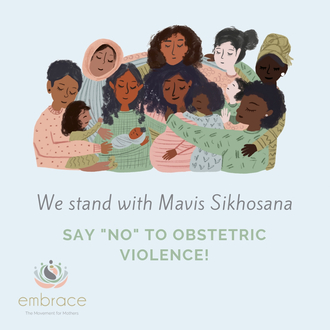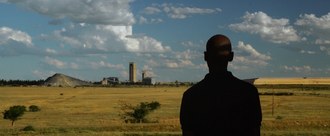- Featured
- Clean air
- Climate justice
- Consumer Rights
- Corporate Accountability
- Data access
- Early Childhood Development
- Economic fairness
- Education
- Electoral fairness
- Environmental justice
- Food justice
- Gender based violence
- Grants/social assistance
- Health
- Housing and infrastructure
- Industry interference
- Land Justice
- LGBTQIA+ rights
- Media/ information access
- Public transport
- Racism
- Reparations
- Safety
- Sanitation
- Service Delivery
- Sexual and Reproductive Rights
- Social justice
- Unemployment
- Womxn's rights/ gender equality
- Workers' rights
- More
-
Demand for MEC Simelane-Zulu to supply Hormone Replacement Therapy at King Edwards VIII HospitalKwaZulu-Natal is South Africa’s second most densely populated province [5]. King Edward VIII Hospital is a tertiary level hospital providing services to the whole of KwaZulu-Natal and parts of the Eastern Cape [6]. The hospital currently does not offer any transgender programs with free distribution and access of hormones. Our objective is for them to do so by making it accessible to people as it currently only available in two provinces (Gauteng and Western Cape) in South Africa. Transgender people are defined as those whose personal identity and gender does not correspond with their birth sex [4]. Implementation of gender-affirming services proves to be scarce and difficult in our country [2]. Section 9 of the Constitution prohibits discrimination, among others on the grounds of gender [1]. The Alteration of Sex Description and Sex Status Acts (2003) corresponds with our constitutions laws which permits one to change the sex description on their birth record under certain circumstances [4]. Hormone replacement therapy (HRT) acts as a very vital part for transgender people to feel more like themselves. Since transgender men and woman will never be able to produce these hormones naturally, HRT is a lifelong treatment that needs to be used recurrently, similarly to chronic medication. People take either the hormone Oestrogen or testosterone with other drugs to help them attain the physical characteristics that society ascribes to the gender they identify with. Examples of this treatment include the development of breasts for transgender woman by taking the hormone Oestrogen whilst Testosterone aids masculinity advances for transgender men [3]. Trans South African you-tube Vlogger Glow Mamiii shares her personal journey on the struggles of gaining access to HRT. She began seeking treatment at Chris Hani Baragwanath (Soweto) but was told she would have to wait 3 months for them to administer the HRT. She then opted to seek treatment from a private doctor which not many people can afford as medical aids don’t cover gender-affirming treatments such as HRT and surgeries. She reveals her struggle of finding a trans-friendly private practitioner as well as her personal details regarding the bodily changes, psychological and emotional distresses she experienced on HRT [7]. During her psychiatric consultations and psychotherapy meetings she speaks out against being diagnosed with gender dysphoria as transgenderism is classified as a gender dysphoria disorder [8]. Johannesburg based media-advocacy organization Iranti published a press release from the World Health Organization which removes mental illness from Trans Diagnoses [9]. Medical aid schemes don’t cover gender-affirming treatments such as HRT and surgeries as they are considered “lifestyle choices” which leaves trans people with the burden of covering these costs [1]. HRT can cost up to R800 a month adding up to almost a quarter of a million rand on medication [3]. 15% of transgender people are living in poverty compared to 4% of the general population. 19% of transgender people report lacking any form of health insurance including medical aid [6]. Studies show that access to gender-affirming treatment helps reduce thoughts of self-harm and suicide among transgender people. The only public hospitals that offer trans-specific healthcare services in South Africa are [4]: • Chris Hani Baragwanath (Soweto) • Steve Biko (Pretoria) • Groote Schuur (Cape Town) • Helen Joseph (Johannesburg) Treatments are often limited and dependent on how close you live to the facility and the lengths of their waiting lists. The treatment entails regular check-ups and to ensure correct dosage. Withdrawals from HRT lead to severe psychological and emotional distress like gender dysphoria, depression, anxiety and fatigue. [1] https://www.2oceansvibe.com/2018/10/26/healthcare-medical-aid-and-the-transgender-struggle-in-south-africa/ [2] https://bhekisisa.org/article/2018-10-26-00-tips-for-finding-a-trans-friendly-healthcare-provider [3] https://bhekisisa.org/article/2018-10-26-00-the-high-cost-of-being-yourself-transgender-healthcare-and-private-medical-aids [4] https://www.sowetanlive.co.za/s-mag/2019-04-05-conversations-transgender-healthcare-in-crisis/ [5] https://www.southafricanmi.com/population-density-map.html [6] http://www.kznhealth.gov.za/kingedwardhospital.htm [7] https://youtu.be/WXYiZK0l6mc [8] https://youtu.be/CpCwS177WhU [9] http://www.iranti.org.za/169 of 200 SignaturesCreated by Mamello Mofokeng
-
We demand the department of mineral resource to rehabilitate the tailing dump of snake park sowetoThe tailing dump contains highly radioactive chemicals like uranium, which can break down into radon gas. This can cause lung cancer , miscarriage and organ failure. our community is exposed to this radioactivity everyday giving us a short life span. Mbali Zulu a 35 year old woman she is a mother who gave birth to a child with cerebral palsy, her child was born with deformities and mental disorder. Her child cannot talk or take her self to the toilet ,she has to buy nappies for the rest of her life. She took her child for adoption because she only survives with grant money and it was not enough for her and the baby.[2] They are many children with cerebral palsy in our community .This is because if a pregnant woman swallows or breathes in radioactive materials , these may be absorbed into her blood stream. from the blood they may pass to the umbilical cord or near the womb and expose the fetus to radiation.[3] Many children are inclined to show symptoms of asthma like having a wheezing chest along with a running nose. The is a higher prevalence of asthma symptoms ( 21,9% and 32,9%) compared to the studies of Vusimuzi (south african national medical research council) [4] Durban roodepoort deep mine began operations more than a century ago in 1895. DRD gold mine sold the tailing dump to mintails limited mine in 2007. Mintails limited assumed full responsibility for its environmental management and rehabilitation. At that time the dump infrastructure was sound and fully contained it did not cause any pollution. In 2010 mintails limited did not maintain the dump, its infrastructure began to fail. Dust and water effluent began to occur. Because mintails limited is now liquidated. It is now within the powers of the department of mineral resource to allow and direct for the rehabilitation of the tailing dump in snake park soweto. [1] water research commission report no 100/02/03 (guidance for rehabilitation of contamination of gold tailing dam foot print) [2]https://youtu.be/0xIVCeIFmLw [3] bench-marks.org [4]www.theconversation.com [5]james duncan/adviser james [email protected]108 of 200 SignaturesCreated by Thokozile mntambo
-
SABC, stop airing alcohol ads that associate alcohol consumption with success.We live in an era where the digital world influences the lives of many people, especially young black communities from poor backgrounds. We see something, we digest it, we want to duplicate it. Institutions such as the SABC should not have a negative impact, or allow negative airing. As the national broadcasting company, content that is of harmful nature or influence should not be aired, if not controlled. It is no secret that alcohol ads are flooding television. What is more saddening is that these ads glamourise alcohol consumption, and associate it with being successful. In the ads, you will see young people in an environment ‘where successful people belong’ consuming the alcohol, and promoting and encouraging those who are watching to go buy and drink it. According to a special issue on alcohol advertising by the Southern African Alcohol Policy Alliance (SAAPA), research has linked exposure to portrayals of alcohol use in the mass media with the development of positive drinking expectancies by children and adolescents. Young people with more positive affective responses to alcohol advertising hold more favourable drinking expectancies, perceive greater social approval for drinking, believe drinking is more common among peers and adults, and intend to drink more as adults. [3] Another research conducted by the Soul City Institute of Social Justice indicate that young people’s views on alcohol advertising, marketing and availability have a direct influence on their drinking patterns and sexual behaviour. Conducted in a rural village in Mpumalanga and an urban township, where young people were encouraged to capture their experiences through photographs and captions, including participating in focus-group discussions, young males believed that drinking a particular brand would lead to them being successful and young women said flavoured drinks were targeted at them. [4] While there are a number of regulations against alcohol adverting that have passed, such as airing alcohol ads between 2pm - 5 pm on weekday and before 12pm on weekends on TV; and 6am - 9am and 2pm - 5pm on weekdays and no advertising before 12pm on weekends on radio, the laws need revisiting. In 2010, the World Health Assembly of the World Health Organisation endorsed a Global Strategy to Reduce the Harmful Use of Alcohol that countries needed to adopt. Ten policy options were identified, one of them being to reduce the impact of marketing, especially on young people and adolescents. While not explicitly calling for a complete ban of alcohol advertising the Global Strategy calls for strong regulation of the various forms of advertising and marketing and for a “precautionary approach to protecting young people against these marketing techniques”[5] If alcohol ads are never going to be banned, we strongly believe that not only the SABC, but other broadcasting channels as well, need to adopt the above strategy; • Do not use settings that associate alcohol products with status and success. • Avoid using young people in the advertisements, or implement a law that only adults from the age of 40 and so, can be in alcohol ads. • Refrain from using influential words such as “Boss, The Man, Good Life, etc. Why we should act now We are what we consume! South Africa has a peculiar drinking profile, and is currently dealing with a large community from the age 15, who are struggling with alcohol abuse. Even though there are hundreds of organisations and campaigns raising awareness about the dangers of alcohol abuse, it does not make it right to have such ads, which are promoting the very same thing that our young black women, men and non gender conforming society are struggling with. We know that advertising causes younger people to drink sooner and in greater quantities. It also creates an environment that normalises drinking and it typically only portrays positive sides of drinking and not any negatives.[6] If we act now, we can have the power to control what we consume on TV, and by doing that, we will be saving ourselves, and the lives of young people. #WeDontNeedAlcoholToBeSuccessful [1] SABC Could Lose Half a Billion Rand If Alcohol Ads Are Banned. Zodidi Dano for IOL. 16 April 2018 [2] Banning Advertising Alcohol Can Save SA R1.9 Billion. Zeenat Vallie for IOL. 2 March 2018. [3] Impact of Alcohol Advertising and Media Exposure on Adolescent Alcohol Use. Peter Anderson, Avalon de Bruijn, Kathryn Angus, Ross Gordon & Gerard Hastings. SAAPA. 14 January 2009. [4] Alcohol Ads Luring SA Youth to Drink. Noni Mokati for IOL and Soul City Institute For Social Justice. 24 February 2017. [5] Alcohol Advertising In South Africa: A Trend And Comparative Analysis. Corne van Walbeek & Michael Daly for School of Economics, University of Cape Town. January 2014. [6]Proposed New Liquor Law Needs Revisiting. Marvin Charles for IOL. 16 August 2017. Image: Pexels144 of 200 SignaturesCreated by Tlou Seopa
-
Tell British American Tobacco to pay the tax they owe usThe big cigarette company British American Tobacco (BAT) have been fighting hard against new anti-smoking laws and taxes by shifting focus onto the illicit cigarette trade and tax evasion. They are funding a misleading campaign to convince government not to increase taxes on cigarettes so they can protect their profits [1]. Even companies like PricewaterhouseCoopers (PwC) are repeating industry claims that increasing taxes drives the illicit trade [2], even though industry has been caught over estimating and funding research into illicit trade [3]. Now Sars say BAT themselves are guilty of tax fraud and evasion and owe R143 million [4]. Clearly, they have been dishonest and shady in their tactics. But big companies like BAT rely on their brand and public image so they are vulnerable to us exposing their hypocrisy. If enough of us come together and shine a spotlight on their shady business and demand they pay what they owe- they will have no choice but to pay the R143 million. Join the campaign to demand BAT stop tax evading and pay what they owe. Each year South Africa spends more than R59 billion to address tobacco related illnesses like lung cancer, emphysema, asthma and bronchitis [5]. At the same time the country only collects between R11 billion and R13 billion from tobacco taxes [6]. This means the South African taxpayer is paying for the healthcare bill of tobacco-related harm while the tobacco industry collects the profits. Our queues at clinics and hospitals keep getting longer and government keeps cutting the healthcare budget while cigarette companies make billions. But, if enough of us come together and demand they pay what they owe, they will have no choice but to pay the R143 million. Government can use this money to help our struggling healthcare system. References [1] Did Big Tobacco buy Twitter? Joan van Dyk for Mail & Guardian 7 Sept 2018 [2] What to expect from the budget: Small tax increases, lower tax collection. Muhammad Hussain for City Press 13 Feb 2019 [3] Are the tobacco industry's claims about the size of the illicit cigarette market credible? The case of South Africa. 2014 Corné van Walbeek, Lerato Shai [4] Sars faces off with British American Tobacco over R143m tax bill, Graeme Hosken for Sunday Times April 2019 [5] The Tobacco Atlas - South Africa [6] BAT revenue rises but profit and market share fall, Robert Laing for Bizcommunity July 20171,889 of 2,000 SignaturesCreated by Khaliel Moses
-
Tell the 3 major political parties to support increasing sexual and reproductive health budgetYOUR CALL TO REPRODUCTIVE JUSTICE: WE ARE WATCHING AND LISTENING Reproductive Justice [1] is defined by three principles: The right to have a child; the right not to have a child; the right to parent children in safe and healthy environments. In 1997 South Africa enacted a globally renowned law on abortion. The Choice on Termination of Pregnancy Act (CTOPA) aimed to address the imbalances of the past where 429 black women died each year from lack of access to these basic health services [2]. The political act of passing this legislation was historical in laying the framework for Reproductive Justice in South Africa. Having an act such as CTOPA in place meant that women and pregnant people would be free to make their own decisions about their bodies and their futures. 22 years later, many people still struggle to access these basic services. But with national elections coming up, we have a chance now to ensure the 5 major political parties commit to lobbying for an increase in the sexual and reproductive health services budget. There is limited information on how people can access abortion services, decreases in the amount of contraceptives available and currently only 7% of healthcare facilities provide abortion services [3]. Because of this, many pregnant people are either forced to turn to unsafe and illegal abortion practices or suffer the physical, emotional and mental harm that comes with bearing an unwanted pregnancy. Leading up to elections, political parties will be running election campaigns focused on winning votes. If they want our votes, they will need to prove to us that they care about the lives of all people seeking access to Sexual & Reproductive Health services. We have a chance now to pressure the 5 major political parties into using their power as members of Parliament to address these issues by ensuring the budget for sexual and reproductive health services is increased. This money will be used to create sexual reproductive justices and access to these services for ALL. This will ensure greater access to public information on safe abortion procedures, fully stocked healthcare facilities with affordable and free contraceptives and more healthcare facilities nationwide providing safe, legal abortions. Sign and join our campaign to ensure sexual reproductive justice for all. If enough of us come together and flood the email inboxes of the 3 major political party leaders, they will have no choice but to support increasing the sexual and reproductive health budget. We have written an email that you can send to one, or all, of the political parties. Here is the email and each political party's email address: ANC- [email protected] EFF- [email protected] DA- [email protected] "Dear Political Party Leader (Mmusi Maimane, President Cyril Ramaphosa and Julius Malema) I am joining other South Africans in calling on you provide leadership on reproductive justice. Reproductive Justice is defined by three principles: The right to have a child; the right not to have a child; the right to parent children in safe and healthy environments. We need you to support an increase in the sexual and reproductive health budget for 2020 and use your power as a member of parliament and political party leader to lobby for an increase before voting day on 8 May. Currently there are decreases in the amount of contraceptives available, there is limited information on how people can access abortion services and currently only 7% of healthcare facilities provide abortion services. Because of this, many pregnant people are either forced to turn to unsafe abortion practices or suffer the physical, emotional and mental harm that comes with bearing an unsupported pregnancy. A budget increase will ensure that there is sexual reproductive justice and access to these services for ALL. We need health managers to lead and to not obstruct access to reproductive justice services. The money should be spent on ensuring that public healthcare facilities are always fully stocked with contraceptives, health professionals are trained in the provision of sexual and reproductive health services and greater access to information on safe abortion procedures and increased delivery of public services of abortion provision. It is time you took sexual and reproductive health seriously. If you want my vote, you must prove to me that you truly care about the people most affected by the lack of sexual and reproductive health services. The Choice on Termination of Pregnancy Act (CTOPA) aimed to address the imbalances of the past where 429 black women died each year from lack of access to these basic health services. 25 years have passed and to get our vote we want to hear your political commitment to real implementation. I trust you will hear our voices." [1] https://www.ucpress.edu/book/9780520288201/reproductive-justice [2] https://www.ajol.info/index.php/samj/article/view/157185 [3] https://amnesty.org.za/research/barriers-to-safe-and-legal-abortion-in-south-africa771 of 800 SignaturesCreated by Khaliel Moses
-
Save Msunduzi CityThe Msunduzi Local Municipality is dysfunctional and is on the brink of collapse and as residents and ratepayers of Msunduzi, hereby unanimously voice our strong and serious concern at the continued lack of effective and efficient delivery of basic services. We demand that the Msunduzi address and improve the service delivery issues and implement the auditor-general report recommendations of (2017-2018) by the 15 April 2019 failing which we, the long suffering residents and ratepayers of Msunduzi, will have no alternative but, in terms of Section 139 of our National Constitution, to motivate for National and Provincial intervention in the local government and management of Msunduzi, including that the Council be dissolved and the municipality placed under administration.5,663 of 6,000 SignaturesCreated by Anthony Waldhausen
-
Tell Joanmariae Fubbs #HandsOffTheSugaryDrinksTaxWe all know Mzansi’s health system is under a lot of pressure, and globally experts have warned that sugary drinks are increasing rates of obesity and Type 2 Diabetes [1]. Researchers from Wits University [2] and the World Health Organisation back policies like the Sugary Drinks Tax as measures to improve people’s health. The introduction of the Sugary Drinks Tax is an important first step towards lifting the pressure on our health system and keeping South Africans healthy. So far the tax has raised R2.3 billion which will be used for health promotion and go back into our healthcare system. But the Department of Trade and Industry committee has called on the Minister of Trade and Industry to intervene in what they call ‘a crisis in the sugar industry’. Chairperson of the Portfolio Committee on Trade and Industry, Joanmariae Fubbs, has called for a moratorium on the Sugary Drinks Tax [3]. Big business are trying to maximize profits by getting the Sugary Drinks Tax repealed. We know their greed has put our nation's health at risk. But we have a chance now to stop this. Let’s send a message to Joanmariae Fubbs and the rest of Parliament, we the people stand behind the Sugary Drinks Tax. If enough of us come together, our voices will be so loud that Joanmariae Fubbs will have to listen. Tackling obesity-related diseases needs to be a national priority, and the tax on sugary drinks is a first step in addressing this national epidemic. One in four people in South Africa are obese [4]. Excess sugar consumption is a major cause of obesity and its related diseases, as excessive sugar intake causes increased risk of diabetes, liver and kidney damage, heart disease, and some cancers. The World Health Organisation (WHO) and the World Cancer Research Fund recommend that people should consume no more than 10% of total calories from sugar. The South African government has been under pressure from beverage companies and retail groups who have been flooding Parliament and Treasury with comments to stop this life-saving policy or weaken it with exemptions and loopholes—and they are having an impact. The South African government MUST put the health of South Africans before special interests who target the most vulnerable populations with their unhealthy products. Please make your voice heard today! [1] Sugar-sweetened beverages and risk of metabolic syndrome and type 2 diabetes: a meta-analysis, Malik VS, Popkin BM, Bray GA, Després JP, Willett WC, Hu FB. Sugary Drinks and Obesity Fact Sheet, Harvard School of Public Health. [2] Sugar tax could save South Africa billions by James Thabo Molelekwa for Health- E News. April 21, 2016. [3] MPs call for intervention in embattled sugar industry by Linda Ensor for Business Day, February 2019 [4] Is SA the ‘fattest nation’ in sub-Saharan Africa, with a third of people obese Kate Wilkinson for Africa Check July 201555 of 100 SignaturesCreated by Khaliel Moses
-
Tell John Steenhuisen #HandsOffTheSugaryDrinksTaxWe all know Mzansi’s health system is under a lot of pressure, and globally experts have warned that sugary drinks are increasing rates of obesity and Type 2 Diabetes [1]. Researchers from Wits University [2] and the World Health Organisation back policies like the Sugary Drinks Tax as measures to improve people’s health. The introduction of the Sugary Drinks Tax is an important first step towards lifting the pressure on our health system and keeping South Africans healthy. So far the tax has raised R2.3 billion which will be used for health promotion and go back into our healthcare system. But the Department of Trade and Industry committee has called on the Minister of Trade and Industry to intervene in what they call ‘a crisis in the sugar industry’. Chief Whip of the DA, John Steenhuisen, has called for a moratorium on the Sugary Drinks Tax [3]. Big business are trying to maximize profits by getting the Sugary Drinks Tax repealed. We know their greed has put our nation's health at risk. But we have a chance now to stop this. Let’s send a message to John Steenhuisen and the rest of Parliament, we the people stand behind the Sugary Drinks Tax. If enough of us come together, our voices will be so loud that John Steenhuisen will have to listen. Tackling obesity-related diseases needs to be a national priority, and the tax on sugary drinks is a first step in addressing this national epidemic. One in four people in South Africa are obese [4]. Excess sugar consumption is a major cause of obesity and its related diseases, as excessive sugar intake causes increased risk of diabetes, liver and kidney damage, heart disease, and some cancers. The World Health Organisation (WHO) and the World Cancer Research Fund recommend that people should consume no more than 10% of total calories from sugar. The South African government has been under pressure from beverage companies and retail groups who have been flooding Parliament and Treasury with comments to stop this life-saving policy or weaken it with exemptions and loopholes—and they are having an impact. The South African government MUST put the health of South Africans before special interests who target the most vulnerable populations with their unhealthy products. Please make your voice heard today! [1] Sugar-sweetened beverages and risk of metabolic syndrome and type 2 diabetes: a meta-analysis, Malik VS, Popkin BM, Bray GA, Després JP, Willett WC, Hu FB. Sugary Drinks and Obesity Fact Sheet, Harvard School of Public Health. [2] Sugar tax could save South Africa billions by James Thabo Molelekwa for Health- E News. April 21, 2016. [3] MPs call for intervention in embattled sugar industry by Linda Ensor for Business Day, February 2019 [4] Is SA the ‘fattest nation’ in sub-Saharan Africa, with a third of people obese Kate Wilkinson for Africa Check July 201591 of 100 SignaturesCreated by Khaliel Moses
-
Help fight type 2 diabetes, demand the Sugary Drinks Tax is increased to 20%Companies like Coca-Cola have been allowed to sell a product that drives type 2 diabetes [1] and they have specifically targeted poor communities who have the least access to quality health services [2]. We all know that many of our schools and spaza shops are covered with Coca-Cola adverts, and for decades many of us didn’t know the truth about sugar in cold drinks, and now many people have family members who are too sick to work. While Coca-Cola makes millions, the queues at our clinics grow longer. In 2017 there were over 100,000 new diabetes cases in the public sector alone [3]. There’s hope though. Thanks to public pressure a Sugary Drinks Tax was introduced in 2018, but our work isn’t done yet. Because of companies like Coca-Cola, the tax was watered down to almost half of what Wits academics have said it needs to be: 20% [4]. 89% of private companies were found not to be paying taxes properly in 2017 [5], yet every day we have to bear the high costs of the VAT hike, and yet there isn’t enough for government funding for health and education. Because of private companies not paying taxes properly, Treasury has cut R350 million from our health budget since the February 2019 budget and now [6] [7]. We need much more money for our health budget, not less. Between now and February 2020, Treasury may make big decisions about our budget and taxes. We know that wealthy companies and individuals will be fighting against taxes on themselves and their products, but if enough of us come together, we could send a clear message to Treasury that we want a strong sugary drinks tax of 20% announced in February 2020 budget speech. We stopped Coca-Cola’s attempts to scrap the Sugary Drinks Tax last year, and now more than ever, we need a strong taxes on products that can be deadly to our health, products like sugary drinks, cigarettes and alcohol. A 20% sugary drinks tax could fill the R350 million hole in our health budget, and prevent more people from consuming sugary drinks which drive diseases like type 2 diabetes, heart disease, liver and kidney damage, and some cancers. [1] Decreasing the Burden of Type 2 Diabetes in South Africa: The Impact of Taxing Sugar-Sweetened Beverages Mercy Manyema, J. Lennert Veerman, Lumbwe Chola, Aviva Tugendhaft, Demetre Labadarios, Karen Hofman Published: November 17, 2015 [2] Big business - and people - grow fat on sweetened drinks. Lynley Donnelly for Mail & Guardian 1 June 2016 [3] Junk food, junk status cause skyrocketing medical costs. Amy Green for Health-e News 24 April 2017 [4] Sugar tax could save South Africa billions in diabetes costs. Thabo Molelekwa 29 April 2016 Health24 [5] Corporates ‘not tax compliant’. Baldwin Ndaba for The Mercury, 22 Aug 2018. [6] http://www.treasury.gov.za/documents/national%20budget/2018/review/FullBR.pdf [7] http://www.treasury.gov.za/documents/mtbps/2018/mtbps/FullMTBPS.pdf11,439 of 15,000 SignaturesCreated by Heala

-
Take Action Against Obstetric Violence at Middelburg Hospital in MpumalangaThe conditions under which mothers birth are incredibly important for the health of both mothers and babies. Birth is a mother's first in-person interaction with their babies and we owe it to them both to facilitate a calm, quiet and respectful space for that.159 of 200 SignaturesCreated by Rumbi Görgens
-
Life Esidimeni families still waiting for paymentWhile other Life Esidimeni families have been paid [1], there are still remaining families yet to receive payment. Why split the families? [2]. The Life Esidimeni families share a collective pain, why prioritise payment for others and not all? The remaining families also need closure and the payment is necessary for this. The Premier made a public commitment to honour the payments [3], now his office is giving the remaining families the run around and it's not right, haven't they suffered enough! All the families ask for is a firm commitment of the 10th December 2018 as a previously agreed deadline for everyone to receive payment and for the Premier's office to stop postponing and commit. References [1] https://www.enca.com/south-africa/life-esidimeni-families-have-received-their-payment [2] https://www.sowetanlive.co.za/news/south-africa/2018-10-16-esidimeni-families-have-to--wait-for-payment/ [3]https://www.news24.com/SouthAfrica/News/makhura-vows-life-esidimeni-families-will-get-compensation-before-deadline-2018061152 of 100 SignaturesCreated by Gabo Kgomongwe
-
Gold miners are dying of silicosis and TB while waiting for compensation, demand action!Government institutions tasked with compensating sick miners have become dysfunctional with backlogs of 200 000+ unpaid certified claims and an even larger number of unprocessed claims. Stringent requirements and processing centralised in Johannesburg makes it very difficult for sick and repatriated miners to access compensation. Many are unaware of their rights to compensation and thousands have already died without being compensated. Without serious reform of the compensation system, and a concrete plan of action from the TSHIAMISO TRUST, most of the 500 000 miners will die without receiving anything, unless we make this our business and do something. THE COMPENSATION SYSTEM IS BROKEN and if the R5 billion is not paid out within 12 years, it will remain with the mining companies.1,383 of 2,000 SignaturesCreated by Breathe Films

.png)

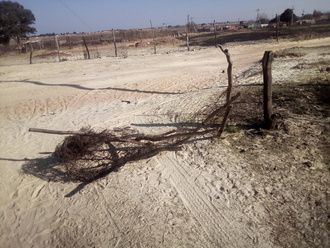

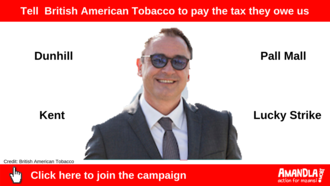.png)
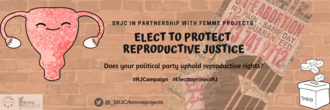



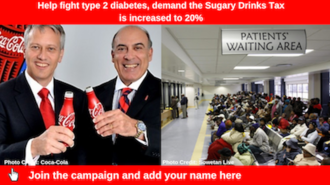.png)
